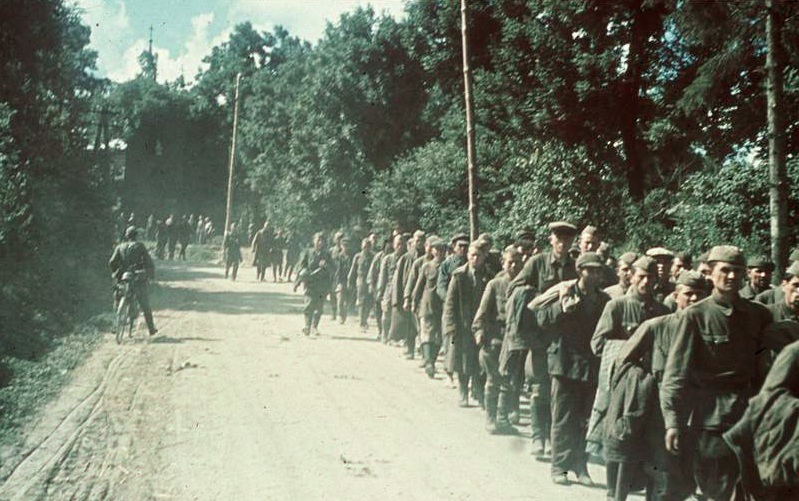What a stupid and dull commentary. For instance, 3rd SS Totenkopfdivision composition was 20%-40% made of SS KL guards, they are part of the paramilitary force of the SS, not the regular army. Since I gather information from this thing you quoted, put your sources then for so much idiosyncratic behavior. I will put mine:
Jr., Charles W. Sydnor (Updated Edition). Soldiers of Destruction: The SS Death's Head Division, 1933–1945. Princeton University Press.
Calm yourself. History debates should be fun. No need to get aggressive.
I like that you've posted a source to back up your argument, but without the specific page numbers it's going to be difficult to try and pinpoint your evidence.
Do you have the primary source that Sydnor is drawing from? That would probably be more helpful with this topic.
It cannot have escaped even the dumbest soldier stationed in occupied territory that they took an awful lot of land for what was supposed to be a defensive war against the Judeo-Bolshevist agressors. Or how all the Jews had vanished from their towns.
And of course they will deny this afterward. All the foreign fighters captured fighting for ISIS also claim they no idea too what was going on there.
If we're talking about the holocaust and the millions killed in camps, not every German military personal would have been aware of the full scale of the horrors because the Nazi regime deliberately compartmentalized information. Many individuals were only aware of specific aspects of the persecution, such as the early boycotts, emigration policies, or concentration camps. The extermination camps and the "Final Solution" were top-secret operations with limited knowledge.
While not everyone had complete knowledge, many Germans were aware of discriminatory policies and violence against Jews and Slavic people. After the war, debates arose over whether this constituted "collective guilt" or if individuals could be held accountable for actions they may not have fully understood. Debates that we're still having to this day.
I have a fascinating book by German historian Florian Huber called
Promise Me You'll Shoot Yourself . It's powerful and disturbing exploration of a little-known aspect of the aftermath of World War II with the mass suicides of ordinary Germans in 1945.
As well as drawing on primary accounts such as letters and diaries (some of which are very disturbing) the book also explores how the initial euphoria and pride associated with Hitler's rise to power gave way to despair and disillusionment as the war turned against Germany, as well as the sense of collective guilt and responsibility felt by many Germans for the atrocities committed by the Nazi regime.
Recommended read, but certainly not a book for the faint of heart.









